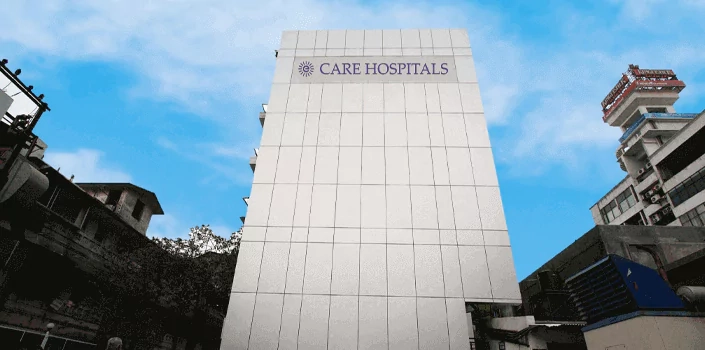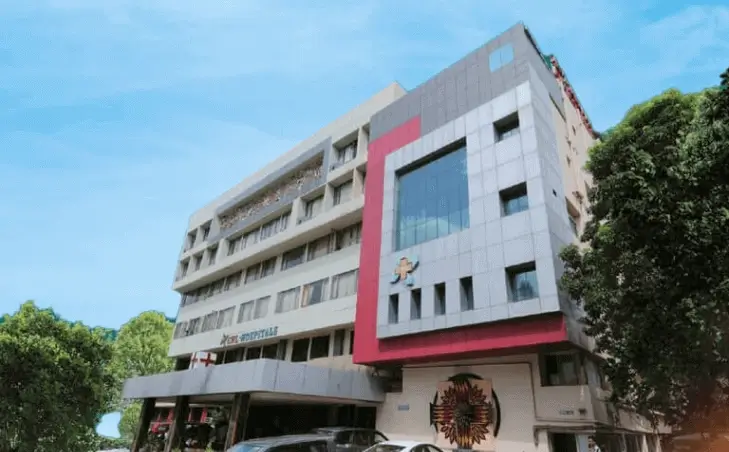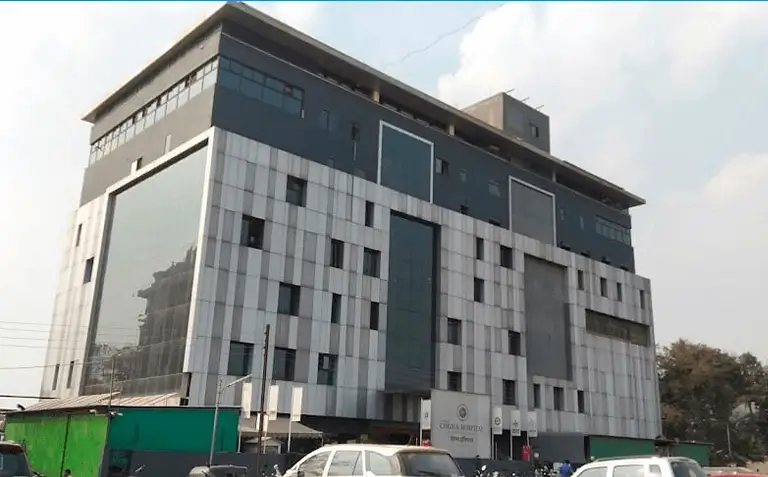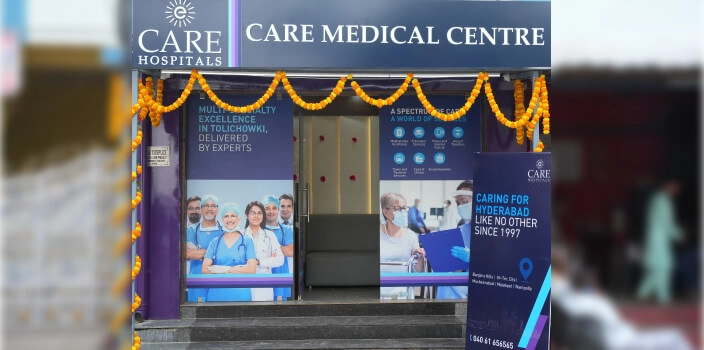-
Doctors
-
Specialities & Treatments
Centre of Excellence
Specialties
Treatments and Procedures
Hospitals & Directions HyderabadCARE Hospitals, Banjara Hills CARE Outpatient Centre, Banjara Hills CARE Hospitals, HITEC City CARE Hospitals, Nampally Gurunanak CARE Hospitals, Musheerabad CARE Hospitals Outpatient Centre, HITEC City CARE Hospitals, Malakpet
HyderabadCARE Hospitals, Banjara Hills CARE Outpatient Centre, Banjara Hills CARE Hospitals, HITEC City CARE Hospitals, Nampally Gurunanak CARE Hospitals, Musheerabad CARE Hospitals Outpatient Centre, HITEC City CARE Hospitals, Malakpet Raipur
Raipur
 Bhubaneswar
Bhubaneswar Visakhapatnam
Visakhapatnam
 Nagpur
Nagpur
 Indore
Indore
 Chh. Sambhajinagar
Chh. SambhajinagarClinics & Medical Centers
Book an AppointmentContact Us
Online Lab Reports
Book an Appointment
Consult Super-Specialist Doctors at CARE Hospitals

Best Hospitals for Laser Eye Surgery in Hyderabad
- Advanced Technology
- Shorter Hospital Stay
- Pre & Post-Operative Care
- All Insurance Accepted

Chat With Our Experts
Get second opinion on Whatsapp
25 lakhs+
Happy Patients
Experienced and
skilled surgeons
17
Health Care Facilities
Top most Referral Centre
for Complex Surgeries
Advanced Laser Eye (LASIK) Surgery
LASIK (Laser vision correction) has transformed millions of lives worldwide. For those considering laser eye surgery, LASIK presents a proven solution for correcting various vision problems, including myopia, hyperopia and astigmatism. This comprehensive guide explores everything about LASIK laser eye surgery, from its innovative techniques and benefits to potential risks and recovery expectations, helping readers make thoughtful decisions about their vision correction journey.
Why Care Group Hospitals is Your Top Choice for Laser Eye Surgery in Hyderabad
CARE Hospitals is a premier destination for laser eye surgery in Hyderabad. It is backed by world-class eye physicians and surgeons who deliver exceptional care. The hospital's ophthalmology department offers comprehensive eye care solutions through state-of-the-art facilities and experienced specialists.
The hospital's success stems from its team of highly skilled ophthalmologists who excel both in diagnosis and surgical interventions. These specialists work collaboratively to address various eye conditions, ensuring each patient receives personalised attention and treatment plans tailored to their specific needs.
The CARE hospital's commitment to excellence is reflected in its specialised services:
- Advanced diagnostic capabilities for precise treatment planning
- Expert handling of complex eye conditions, including eye cancers and retinal diseases
- Specialised paediatric eye care services
- State-of-the-art surgical facilities for various eye procedures
- Comprehensive post-operative care and follow-up
Best Laser Eye Surgery Doctors in India


Cutting-edge Surgical Innovations at CARE Hospital
Modern laser eye surgery has evolved significantly through groundbreaking technological advancements. At CARE Hospital, patients benefit from state-of-the-art surgical innovations that ensure precise, safe, and effective vision correction outcomes.
The hospital employs advanced femtosecond laser technology, which creates ultra-precise corneal flaps during LASIK procedures. This technology offers remarkable accuracy, consequently reducing the risk of complications and enhancing the overall surgical experience.
Conditions for Laser Eye Surgery
Successful laser eye surgery outcomes depend heavily on meeting specific eligibility criteria. A thorough evaluation determines whether a patient qualifies for the laser operation for eyes based on several essential factors.
These include:
- Age: Patients must be at least 18, although most surgeons prefer candidates to be 21 or older. This requirement ensures vision stability, as younger patients often experience frequent prescription changes.
- Vision stability: Candidates must maintain a stable prescription without significant changes for at least 12 months. This stability helps predict post-surgical outcomes accurately.
- The severity of refractive errors: LASIK effectively treats:
- Nearsightedness up to -12 diopters
- Farsightedness up to +6 diopters
- Astigmatism up to 6 diopters
- Corneal health: The cornea must possess sufficient thickness, as the procedure involves reshaping the eye's front surface. Conditions like keratoconus or extremely irregular corneal surfaces might disqualify candidates.
- General eye health: The patient's overall eye health is another critical factor. Patients should be free from:
- Severe dry eye syndrome
- Glaucoma
- Cataracts
- Eye infections
- Corneal diseases
- General health: Certain medical conditions might affect healing or increase complication risks:
- Autoimmune disorders
- Uncontrolled diabetes
- Rheumatoid arthritis
- HIV with compromised immune system
Types of Laser Eye Surgery Procedures
The choice of laser operation for eyes depends primarily on individual eye conditions and lifestyle requirements.
- Small Incision Lenticule Extraction (SMILE): SMILE represents the latest advancement in laser vision correction. This minimally invasive procedure creates a small lens-shaped disc within the cornea using a femtosecond laser.
- Laser-Assisted in Situ Keratomileusis or LASIK: LASIK remains the most widely performed laser eye surgery since the 1990s. This procedure involves creating a corneal flap and utilising an excimer laser to reshape the underlying tissue. LASIK effectively treats:
- Nearsightedness up to -10 diopters
- Farsightedness up to +4 diopters
- Astigmatism
- Photorefractive Keratectomy or PRK: Pioneered in the 1980s, PRK offers an alternative for patients unsuitable for LASIK. Unlike LASIK, PRK removes the cornea's outermost layer entirely rather than creating a flap.
- Femto LASIK: Femto LASIK enhances traditional LASIK by using femtosecond laser technology instead of mechanical blades. This advancement enables more precise corneal flap creation, improving overall surgical accuracy.
Know The Procedure
Preparing for laser eye surgery requires careful attention to detail and proper guidance.
Pre-surgery Preparation
Contact lens wearers must switch to glasses before their initial evaluation. Soft contact lens users should stop wearing them two weeks prior, whereas rigid gas permeable lens users need a three-week break. Hard lens wearers require four weeks without contacts.
A thorough baseline evaluation determines candidacy through comprehensive eye measurements. These measurements might need repetition after a week to ensure accuracy. Patients should avoid:
- Creams and lotions near the eyes
- Makeup application
- Perfumes and fragrances
Laser Eye Surgical Procedure
The surgical procedure begins with numbing eye drops and placing an eyelid holder to prevent blinking. A suction ring maintains proper eye position, temporarily dimming vision. The ophthalmologist uses a femtosecond laser or mechanical microkeratome to create a thin corneal flap.
Upon folding back the flap, the ophthalmologist uses an excimer laser to reshape the cornea according to pre-programmed measurements. Throughout the procedure, patients focus on a fixed light while the laser tracks eye position 500 times per second. The entire process usually takes less than 30 minutes.
Post-surgery Recovery
Immediately after surgery, patients might experience:
- Burning or itching sensation
- Mild discomfort
- Watery eyes
- Blurred vision
Vision improvement occurs rapidly, yet complete stabilisation takes three to six months. Patients should avoid swimming and hot tubs for one to two months. Contact sports require a four-week waiting period.
Risks and Complications
Clinical studies show that vision-threatening complications from LASIK are rare. These include:
- Dry eyes
- Visual disturbances
- Glare and halos around bright lights
- Increased light sensitivity
- Double vision
- Reduced night vision quality
Benefits of Laser Eye Surgery
The primary advantage of laser eye surgery is its permanent nature. The structural improvements made to the cornea during the procedure last a lifetime, eliminating the ongoing expenses associated with glasses and contact lenses.
Vision improvement statistics remain consistently impressive. About 99% of patients achieve 20/40 vision or better post-surgery, whilst more than 90% attain perfect 20/20 vision.
The procedure's efficiency extends beyond vision correction. Recovery proves swift, with most patients returning to work within days. The surgery takes merely 15 minutes, making it convenient for busy schedules.
The procedure's safety profile continues to improve through technological advancements.
Insurance Assistance for Laser Eye Surgery
Health insurance coverage for laser eye surgery has evolved considerably in recent years.
Several leading insurance companies in India provide LASIK coverage under their health plans, provided certain conditions are met:
- Eye surgery necessitated by injury or accident-related refractive errors
- Refractive errors resulting from previous surgical procedures
- Physical limitations preventing the use of contact lenses
- Inability to wear glasses because of physical deformity or persistent discomfort
Second Opinion for Laser Eye Surgery
Seeking a second opinion for laser eye surgery is a vital step in ensuring optimal outcomes. This medical decision deserves thorough research and careful consideration, like any other surgical procedure.
Patients often gravitate towards quick, low-cost procedures. Still, choosing an experienced surgeon typically ensures more personalised care and professional attention.
Conclusion
Laser eye surgery is a proven solution for vision correction, backed by decades of successful outcomes and technological advancements. CARE Hospitals delivers exceptional results through state-of-the-art technology and experienced surgeons who understand each patient's needs.
Patients should remember that successful outcomes depend on choosing qualified surgeons and following proper pre and post-operative care guidelines. Therefore, thorough research, including seeking second opinions and understanding insurance coverage, proves essential for achieving optimal results.
Laser Eye Surgery Hospitals in India
-
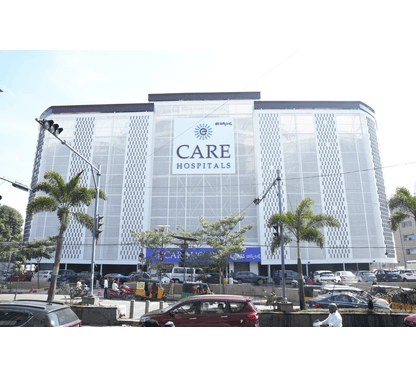
CARE Hospitals, Banjara Hills, Hyderabad
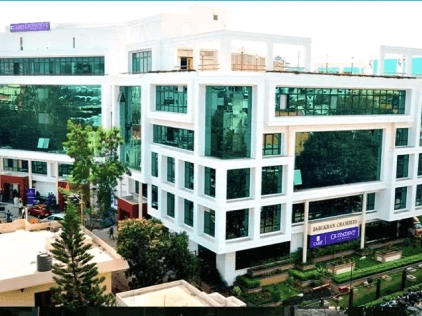
CARE Hospitals Outpatient Centre, Banjara Hills, Hyderabad
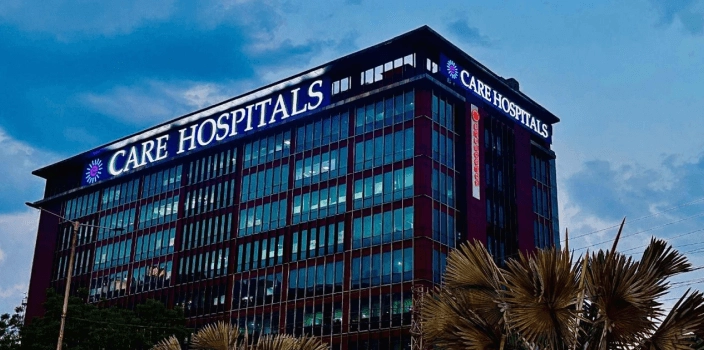
CARE Hospitals, HITEC City, Hyderabad
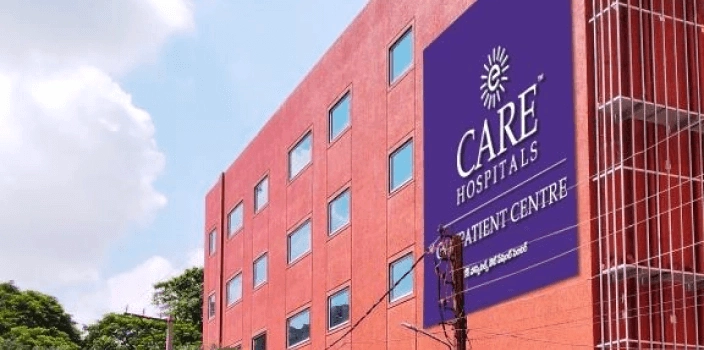
CARE Hospitals Outpatient Centre, HITEC City, Hyderabad
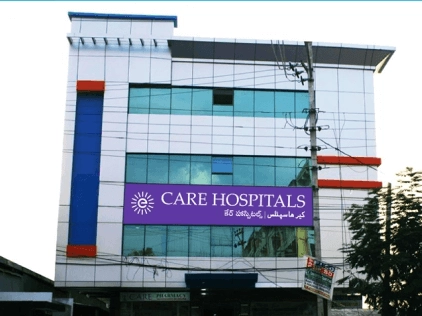
Gurunanak CARE Hospitals, Musheerabad, Hyderabad
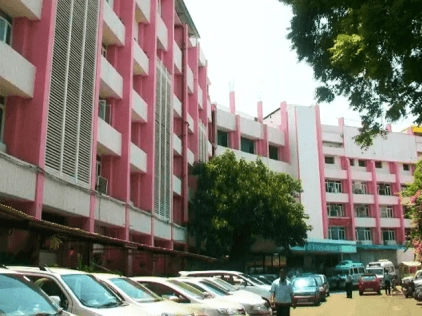
CARE Hospitals, Nampally, Hyderabad
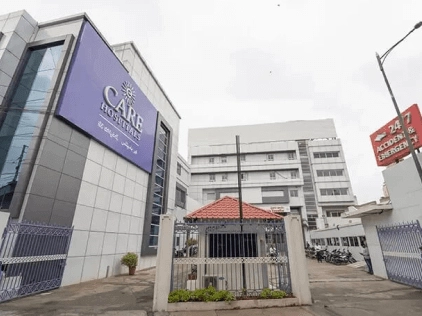
CARE Hospitals, Malakpet, Hyderabad
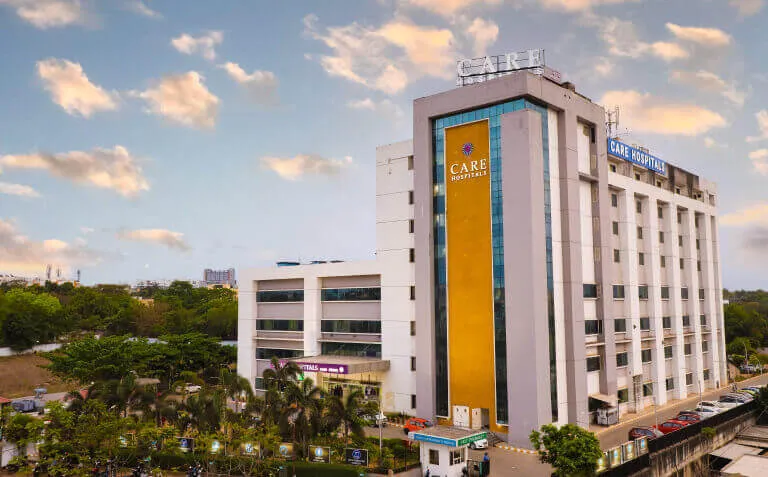
CARE Hospitals, Bhubaneswar
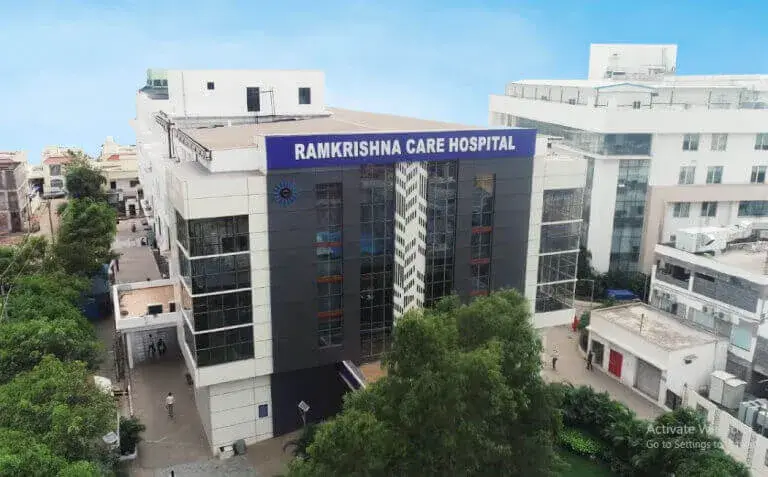
Ramkrishna CARE Hospitals, Raipur
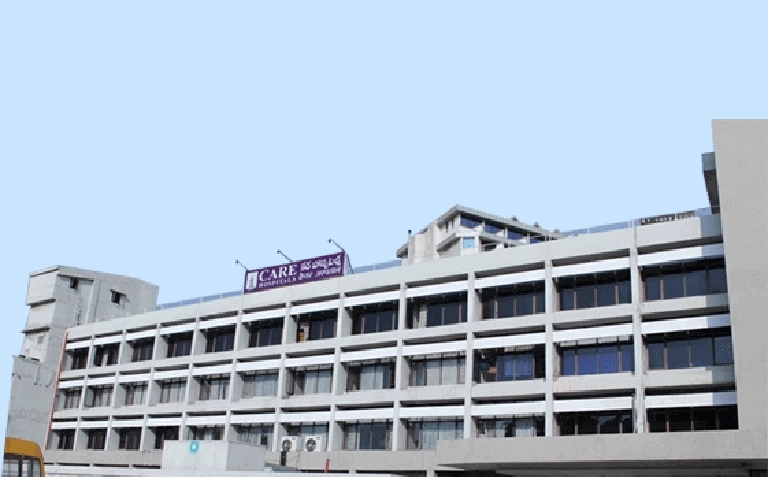
CARE Hospitals, Ramnagar, Visakhapatnam
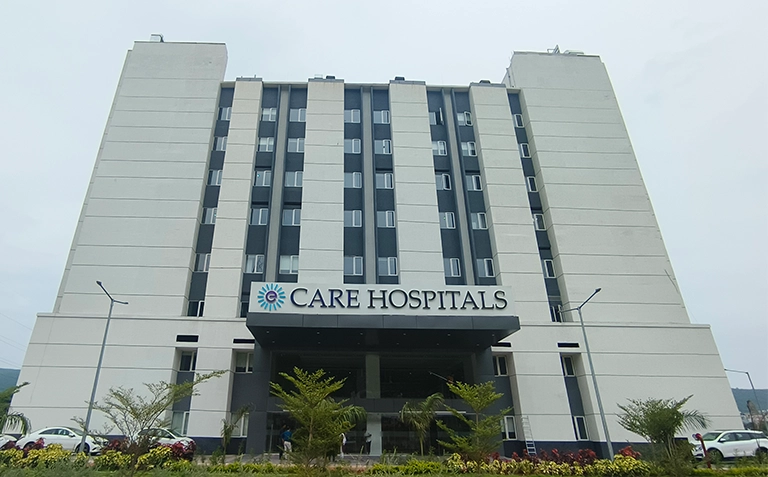
CARE Hospitals, Health City, Arilova
Frequently Asked Questions
Laser eye surgery treats various refractive errors, enabling patients to lower or eliminate their dependence on glasses and contact lenses.
Laser eye treatment is a quick procedure, usually completed within 15 to 30 minutes for both eyes. The laser itself works in just minutes, with preparation and recovery making up the rest.
Common temporary side effects include:
- Dry eyes lasting up to six months
- Light sensitivity
- Glare and halos around bright lights
- Temporary vision fluctuations
Visual recovery typically takes one day to one week. Most patients resume normal physical activities within 48 hours of surgery.
The FDA has approved laser eye surgery as a safe and effective procedure.
The procedure causes no pain, thanks to anaesthetic eye drops that completely numb the eye.
Despite its complicated technology, laser eye surgery remains a minor outpatient procedure.
Complications from laser eye surgery prove extremely rare, with vision-threatening issues occurring in less than 1% of cases. Patients should seek immediate medical intervention if they experience:
- A sudden decrease in vision
- Unusual pain or discomfort
- Redness or discharge from eyes
Insurance coverage applies primarily when refractive errors equal or exceed 7.5 dioptres.
Local anaesthetic eye drops completely numb the eye before surgery. Patients remain awake throughout the procedure yet feel no pain, only slight pressure around the eye.
Post-operative care proves crucial for optimal results. For the first few weeks, patients should avoid:
- Swimming, saunas, and hot tubs for four weeks
- Eye makeup application for one week
- Dusty environments for seven days
- Contact sports for two weeks
Ideal candidates must be at least 18 years old, though most surgeons prefer patients to be 21 or older.
Watching television proves safe within a few hours after laser eye surgery, provided patients follow specific guidelines. Most surgeons recommend limiting screen time to 30-minute intervals during the first 24 hours.
Still Have a Question?








